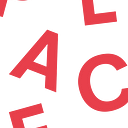Our approach to change
Author: Julian Corner, April 2018
Lankelly Chase builds partnerships across the UK to change the systems that perpetuate severe and multiple disadvantage. We develop and support action inquiries into the changes that are needed. We don’t think any one person or organisation has all the answers, and so we aim to make these inquiries as collective and collaborative as possible.
Through years of working with people tackling issues such as homelessness, drug misuse, violence, mental ill health and poverty, we’ve observed that the systems which are effective in responding to severe and multiple disadvantage have some common qualities. We call these qualities systems behaviours.
Our action inquiries therefore aim to create the conditions within which these system behaviours can be tested, understood and promoted.
OUR GOAL
We want to see systems across the UK that are effective in contending with the complex interlocking nature of severe and multiple disadvantage.
OUR ASSUMPTIONS
We hold five assumptions about the nature of systems which come from our experience of supporting change across the UK:
1. Systems are complex and often messy webs that are constantly shifting. They consist of tangible things like people and organisations, connected by intangible things like history, worldviews, context and culture.
2. Everyone who is part of a system holds a different perspective on its nature, purpose and boundaries. No one person holds the whole truth (including us).
3. Everything and everyone exists in relationships, and these involve emotions.
4. Change emerges from the way the whole system behaves not from the actions of any one project or organisation. We therefore need to help build the fitness of the system to generate positive change.
5. The complexity of systems means we can’t fully plan how to achieve the changes we seek, but we can identify several conditions that enable positive change and the actions that are likely to move us toward our goal.
Our assumptions inform how we work. For example, we:
● involve the diversity of people found across the system
● attend to the whole as well as the parts
● acknowledge the importance of relationships and emotions to this work
● explore questions collectively using action inquiry
SYSTEM BEHAVIOURS
We have identified core behaviours that help systems function better for people facing severe and multiple disadvantage. Through observing different fields including homelessness, violence, health, the arts, community development, substance misuse and youth work, we’ve seen that (i) it is the presence of these behaviours, more than any specific methodology, that seems to account for positive change and (ii) these behaviours need to be present and continually promoted in every part of the system.
These behaviours are about perspective, power and participation.
PERSPECTIVE
1. People view themselves as part of an interconnected whole
Everyone working towards positive change understands that their actions form part of a web of activity made up of the contribution of many others. Everyone wants the system as a whole to work and knows they cannot control it.
2. People are viewed as resourceful and bringing strengths
Everyone is viewed as bringing both strengths and weaknesses as part of a resourceful network of people who are continually growing and learning from each other.
3. People share a vision
People appreciate each other’s perspectives and seek common purpose and understanding.
POWER
4. Power is shared, and equality of voice actively promoted
All people are able to play their fullest role in building an effective system. Unequal distribution of power, including structural inequality, is continually addressed.
5. Decision-making is devolved
Those people closest to a complex situation are free to engage with its uniqueness and context and to use their initiative to respond to it.
6. Accountability is mutual
System improvements are driven by accountability to the people being served. The people being served are supported to take responsibility for their own change.
PARTICIPATION
7. Open, trusting relationships enable effective dialogue
People feel safe to ask the difficult questions, voice disagreement and deal with the conflict and uncomfortable emotions that surface.
8. Leadership is collaborative and promoted at every level
Leadership is identified and valued as much in the person experiencing interlocking disadvantages and the frontline worker, as in the CEO or commissioner.
9. Feedback and collective learning drive adaptation
People can see a learning loop between the actions they take and their understanding of the problem they are trying to solve, so that each is being continually adapted and refined.
HOW WE WORK
Rather than seeking to impose the system behaviours, we’ve learnt that the most effective way to work with complex systems is to develop open and powerful questions as the basis for collective inquiry. This involves collaborating with people across systems to act, reflect and iterate.
We are learning and adapting as we go around the central question of ‘how can we change the systems that perpetuate severe and multiple disadvantage in (place)’? We do not have a predetermined sense of how to do this.
